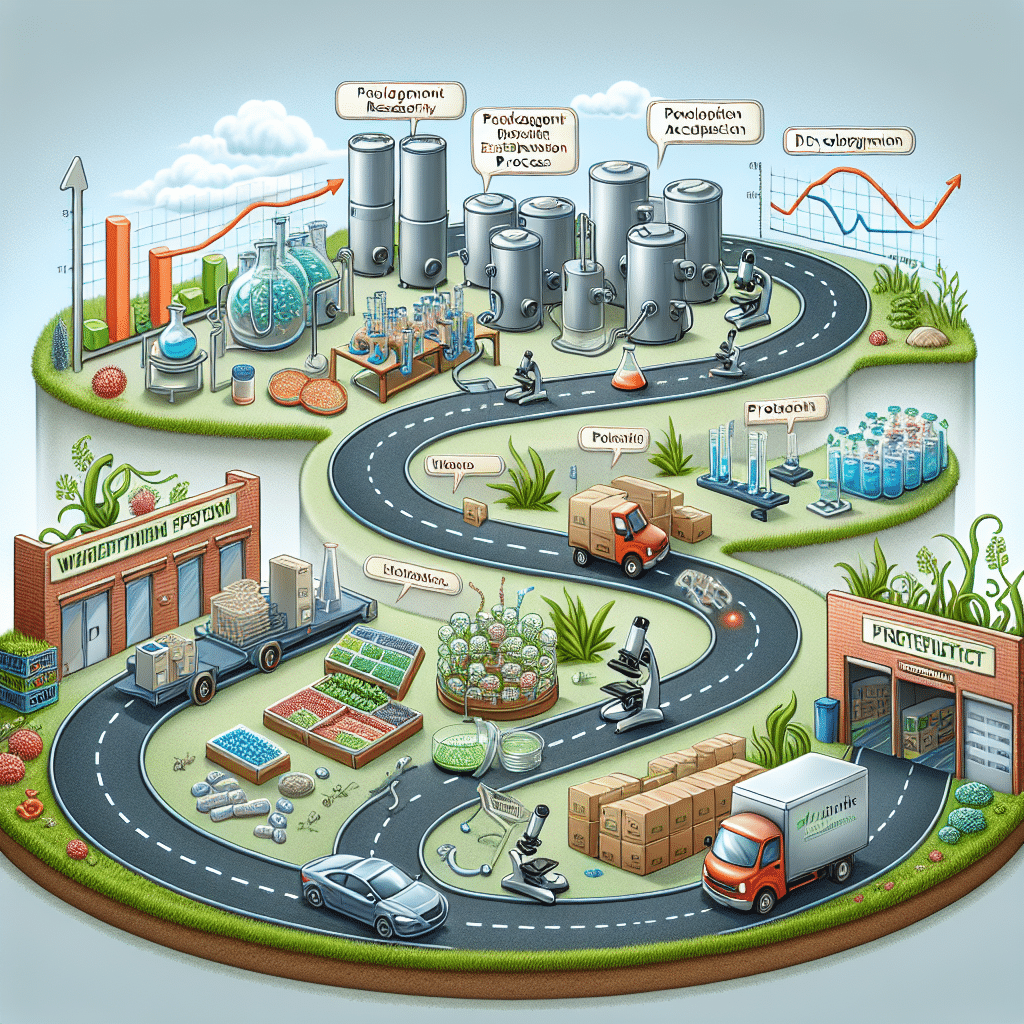The Road to Profitability with Microbe Produced Proteins
-
Table of Contents
- Microbe-Produced Proteins: Paving the Way to Profitability
- The Science Behind Microbe-Produced Proteins
- Market Potential and Growth Projections
- Advantages of Microbe-Produced Proteins
- Challenges and Solutions on the Path to Profitability
- Case Studies: Success Stories in Microbial Protein Production
- Economic Benefits and Cost-Effectiveness
- Conclusion: The Future of Protein is Microbial
- Discover ETprotein’s High-Quality Microbe-Produced Proteins
Microbe-Produced Proteins: Paving the Way to Profitability

The quest for sustainable and efficient protein sources has led to a revolutionary development in the field of biotechnology: microbe-produced proteins. This innovative approach to protein production is not only environmentally friendly but also holds the potential to revolutionize the food and feed industries. In this article, we will explore the journey towards profitability with microbe-produced proteins, examining the technology, market potential, and the economic benefits that they offer.
The Science Behind Microbe-Produced Proteins
Microbe-produced proteins, also known as microbial proteins or single-cell proteins, are derived from microorganisms such as bacteria, yeast, algae, and fungi. These microorganisms are cultured in controlled environments and fed with various substrates, including carbon sources like glucose, agricultural by-products, or even carbon dioxide. Through fermentation processes, these microbes efficiently convert substrates into high-quality protein biomass.
Market Potential and Growth Projections
The global market for alternative proteins is expected to reach significant heights in the coming years. According to a report by MarketsandMarkets, the alternative protein market size is projected to grow from USD 2.7 billion in 2020 to USD 4.2 billion by 2025, at a CAGR of 9.5%. This growth is driven by factors such as the rising demand for sustainable food sources, the growing vegan and vegetarian population, and increasing awareness of the environmental impact of traditional animal farming.
Advantages of Microbe-Produced Proteins
- Sustainability: Microbial protein production has a lower environmental footprint compared to traditional animal-based proteins, requiring less water, land, and energy.
- Efficiency: Microbes have high growth rates and can double their biomass in a matter of hours, leading to rapid protein production.
- Nutritional Value: Microbe-produced proteins are rich in essential amino acids, vitamins, and minerals, making them a nutritious alternative to conventional proteins.
- Scalability: The fermentation process can be scaled up to meet growing demand without the same spatial constraints as livestock farming.
Challenges and Solutions on the Path to Profitability
Despite the advantages, there are challenges to overcome in the commercialization of microbe-produced proteins. These include consumer acceptance, regulatory hurdles, and the need for technological advancements to improve yield and reduce costs. However, ongoing research and development, coupled with strategic partnerships and investments, are paving the way for these proteins to become a profitable and mainstream food source.
Case Studies: Success Stories in Microbial Protein Production
Several companies have successfully commercialized microbe-produced proteins. For example, Quorn, a brand offering meat substitutes made from mycoprotein, has seen substantial growth in sales, indicating strong market acceptance. Another example is Calysta, which produces FeedKind protein for aquaculture by fermenting natural gas. These success stories demonstrate the commercial viability of microbial proteins.
Economic Benefits and Cost-Effectiveness
Microbial protein production can be cost-effective due to lower resource requirements and the potential for utilizing waste streams as feedstock. Additionally, the ability to produce proteins locally reduces transportation costs and contributes to food security. As production technologies mature and scale, the cost of microbe-produced proteins is expected to decrease, further enhancing their economic appeal.
Conclusion: The Future of Protein is Microbial
The road to profitability with microbe-produced proteins is paved with innovation, sustainability, and economic potential. As the world seeks to feed a growing population while minimizing environmental impact, microbial proteins stand out as a promising solution. With continued research, investment, and consumer education, these proteins are poised to play a significant role in the future of food and feed.
Discover ETprotein’s High-Quality Microbe-Produced Proteins
If you’re looking for top-notch microbe-produced proteins, ETprotein offers a range of products that cater to various industries. Their portfolio includes organic rice protein, pea protein, and a variety of seed proteins, all characterized by their neutral taste and non-GMO, allergen-free attributes. ETprotein’s L-(+)-Ergothioneine (EGT) products, available in different grades, boast over 98% purity, making them ideal for nutraceutical, pharmaceutical, and cosmeceutical applications.
ETprotein’s commitment to quality and customer satisfaction makes them a leading choice for businesses seeking reliable and sustainable protein solutions. To learn more about their offerings or to request samples, reach out to ETprotein and take the first step towards integrating microbe-produced proteins into your product lineup.
About ETprotein:
ETprotein, a reputable protein and L-(+)-Ergothioneine (EGT) Chinese factory manufacturer and supplier, is renowned for producing, stocking, exporting, and delivering the highest quality organic bulk vegan proteins and L-(+)-Ergothioneine. They include Organic rice protein, clear rice protein, pea protein, clear pea protein, watermelon seed protein, pumpkin seed protein, sunflower seed protein, mung bean protein, peanut protein, and L-(+)-Ergothioneine EGT Pharmaceutical grade, L-(+)-Ergothioneine EGT food grade, L-(+)-Ergothioneine EGT cosmetic grade, L-(+)-Ergothioneine EGT reference grade and L-(+)-Ergothioneine EGT standard. Their offerings, characterized by a neutral taste, non-GMO, allergen-free attributes, with L-(+)-Ergothioneine purity over 98%, 99%, cater to a diverse range of industries. They serve nutraceutical, pharmaceutical, cosmeceutical, veterinary, as well as food and beverage finished product distributors, traders, and manufacturers across Europe, USA, Canada, Australia, Thailand, Japan, Korea, Brazil, and Chile, among others.
ETprotein specialization includes exporting and delivering tailor-made protein powder and finished nutritional supplements. Their extensive product range covers sectors like Food and Beverage, Sports Nutrition, Weight Management, Dietary Supplements, Health and Wellness Products, and Infant Formula, ensuring comprehensive solutions to meet all your protein needs.
As a trusted company by leading global food and beverage brands and Fortune 500 companies, ETprotein reinforces China’s reputation in the global arena. For more information or to sample their products, please contact them and email sales(at)ETprotein.com today.












